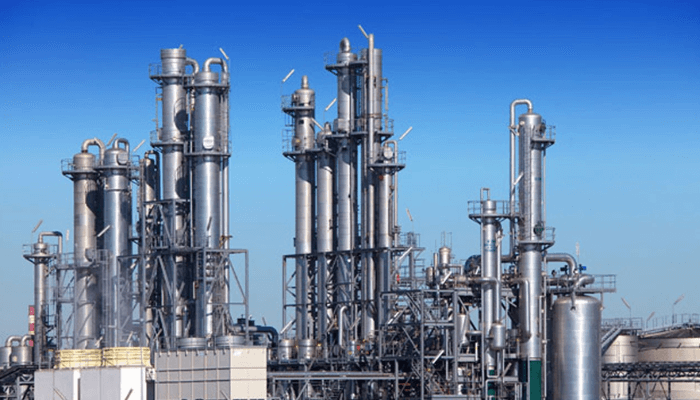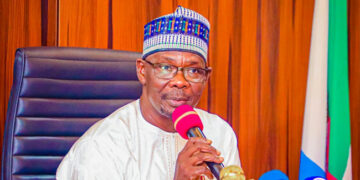Recent conversations triggered by the Bayo Ojulari-led NNPC management on the potential privatisation of Nigeria’s three state-owned refineries are not only welcome; they are long overdue. These refineries, while incorporated as standalone business entities under the ownership of the Nigerian state, have in reality become hollow shells: technically insolvent, chronically non-operational, and structurally unsalvageable.
Years of corrosion, erosion, and general environmental wear have undermined the process integrities of the refineries. Beyond physical decay, the refineries were never viable as going concerns. They lacked financial independence, operating without proper profit and loss accountability or meaningful liquidity. The result has been an unsustainable drain on national resources.
Nigeria has poured vast sums into these failed assets, about $3 billion into Port Harcourt , Kaduna and Warri refineries alone in recent years. These efforts yielded little more than media fanfare; the plants quickly returned to dormancy. Since 2008, about $18 billion has been expended on refinery rehabilitation, emolument and personnel cost across the country with nothing of value to show. This broken model contrasts sharply with Nigeria’s equity stake in the Nigeria Liquefied Natural Gas (NLNG) project, a rare success story: profitable, dividend-yielding, and driven by private-sector discipline.
It is against this background that my learned brother, Femi Falana, SAN, made the important legal point that NNPC cannot by itself sell the refineries. This is valid. But under the Petroleum Industry Act (PIA), NNPC Limited, together with the Ministry of Finance Incorporated (MOFI) and the Ministry of Petroleum, can empower the National Council on Privatisation and Commercialisation (NCPC), through the Bureau of Public Enterprises (BPE), to initiate a transparent sale of shares or liquidate assets. Unless the NCPC Act has been amended to exclude NNPC subsidiaries from its purview, and I am unaware that it has, this legal route remains viable and constitutional.
The recent signal by NNPC Group CEO Bayo Ojulari that the sale of the refineries is still “not off the table” is a step in the right direction. It reflects a sober recognition that years of rehabilitation have yielded diminishing returns. The imported components are often misaligned with the ageing infrastructure. The financial logic is broken. Even if we revived the plants today, their sustainability remains doubtful. They can not perform efficiently and profitably as the new Dangote Refinery and petrochemicals
Experts across the industry have alluded to the fact that privatisation is a legal way for NNPC to exit from this loss making ventures.
Privatisation is not just legally possible; it is economically essential. Unlike joint ventures (JVs), which keep NNPC exposed to costly cash call arrangements, outright privatisation can generate immediate revenue, reduce budgetary pressure, and release capital for new exploration. The past experience with Nigeria’s 49 per cent holding in NLNG provides a clear lesson: a smaller stake with a stronger partner is more beneficial than a larger stake in a failing enterprise. In my strong opinion, we should reduce our equity in such ventures to 20 per cent and divest the rest to generate cash and efficiency.
Calls for privatisation are no longer limited to policy wants and consultants. The Manufacturers Association of Nigeria (MAN), petroleum marketers, and the wider Organised Private Sector (OPS) have now joined the chorus. They argue that only a fully privatised downstream oil sector can break the cycle of inefficiency and import dependency. It’s hard to disagree when we look at successful models like the Eleme Petrochemicals plant or the ongoing stabilisation efforts by the Dangote Refinery and Petrochemicals complex in Lagos.
Dangote’s arrival is timely. While its 650,000-barrel-per-day capacity will ease fuel shortages and import bills, it must be seen as a complement, not a substitute, for systemic reform. The Federation must move away from direct operations and embrace regulation. Government should no longer be in the business of running businesses. From aluminium smelting to pulp and paper, fertilisers to airlines, our track record with state-owned enterprises is clear: inefficiency, waste, and failure.
Nigeria has a comparative advantage in several sectors, textiles for example, that have collapsed due to policy neglect and lack of competitiveness. This refiner’s debate is not merely about assets and oil; it’s about the model of economy we want to build. We must shift the engine of growth from oil dependency to human capital development, digital innovation, agriculture, and marine economies. That won’t happen if we keep pouring public funds into a refining system stuck in the 1980s.
The reformist instinct of the Tinubu administration must now be matched with courage. President Bola Tinubu must give the Ojulari-led NNPC team the political backing to make hard, necessary, and non-sentimental decisions. The country must also support the EFCC and international forensic auditors in uncovering the truth behind the billions spent over the last decade, particularly within NNPC, PPMC, and the refinery subsidiaries.
This moment is a test of resolve. The cost of delay is not just economic; it is national political urgency. Let us seize the opportunity for once to get it right.
– Dan D. Kunle, a Business Consultant











